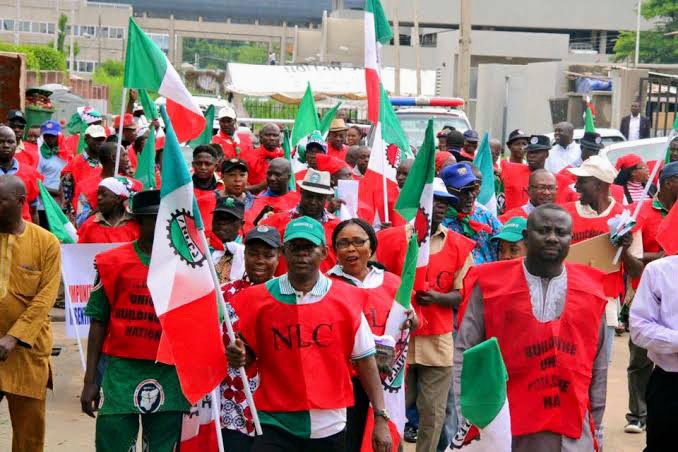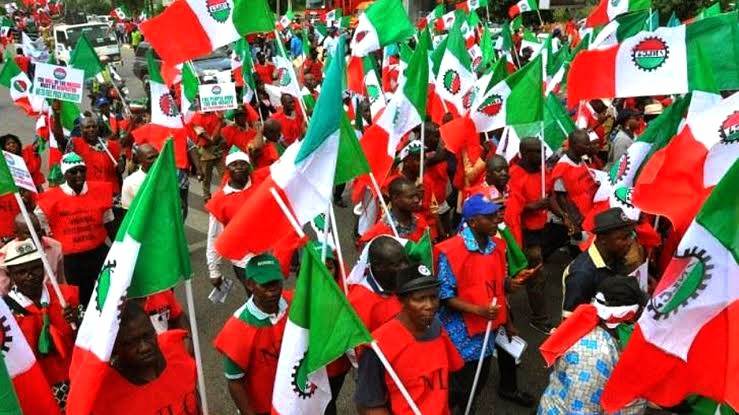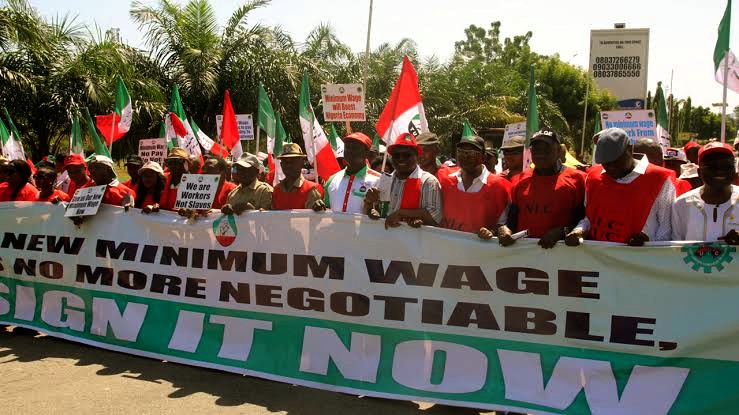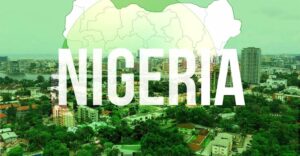
Minimum Wage in Nigeria: NLC News Update

The debate over minimum wage increases remains a contentious issue in economic and political arenas. Proponents argue that higher wages improve living standards, reduce poverty, and stimulate the economy, while opponents caution that such increases can lead to job losses, higher prices, and economic inefficiencies.
The Nigerian Labour Congress (NLC)

The Nigerian Labour Congress (NLC) stands as a prominent trade union organization in Nigeria, advocating for the rights and welfare of workers in the country. Established in 1978, the NLC emerged from the consolidation of four central labor organizations: the Nigeria Trade Union Congress (NTUC), Labour Unity Front (LUF), United Labour Congress (ULC), and Nigeria Workers Council (NWC). This merger aimed to create a unified platform to enhance the bargaining power of Nigerian workers.
Historical Background
The formation of the NLC stemmed from the need for a cohesive body to effectively represent the interests of the Nigerian workforce. Before its establishment, the labor movement in Nigeria was fragmented, weakening its influence. Consequently, merging the existing labor organizations into the NLC marked a significant milestone in Nigeria’s labor movement.
Objectives and Functions
The NLC’s main goal is to safeguard the rights, welfare, and interests of Nigerian workers. It achieves this through collective bargaining, labor education, and social dialogue. Additionally, the NLC pushes for policies that boost workers’ rights, enhance working conditions, and ensure fair pay.
Structure and Governance
The NLC operates through a well-defined structure, including the National Executive Council (NEC), which serves as the highest decision-making body. The NEC comprises elected officials and representatives from affiliated unions. Additionally, the NLC has state councils that coordinate activities at the regional level, extending the organization’s influence across the entire country.
Major Achievements
Over the years, the NLC has recorded several notable achievements. For instance, it secured wage increases for workers through persistent advocacy and industrial actions. Furthermore, the NLC negotiated better working conditions and fought against unfair labor practices. Its efforts also led to the enactment of labor-friendly laws and policies that protect workers’ rights.
Challenges
Despite its achievements, the NLC faces numerous challenges. These include political interference, internal conflicts, and financial constraints. Moreover, the changing nature of work, with the rise of the gig economy and informal employment, presents new challenges for the NLC in organizing and representing workers in these sectors.
Current Role and Influence
Today, the NLC remains a formidable force in Nigeria’s labor landscape. It actively participates in national discourse, particularly on issues related to labor and social justice. For example, the NLC frequently engages with the government on policy matters and vocally criticizes policies that negatively impact workers, such as fuel subsidy removals and austerity measures.
Conclusion
In conclusion, the Nigerian Labour Congress plays a vital role in shaping the labor movement in Nigeria. Through its advocacy, collective bargaining, and social dialogue, the NLC has made significant strides in improving the lives of Nigerian workers. Nevertheless, it must continue to evolve and adapt to address emerging challenges and ensure its relevance in the rapidly changing world of work.
NLC Minimum Wage News

The Nigerian Labour Congress (NLC) and the Trade Union Congress (TUC) recently initiated a labor strike, sending shockwaves through Nigeria and highlighting profound frustrations with economic conditions. Starting on June 3, 2024, the strike aimed to immediately review the national minimum wage and address various economic policies exacerbating the country’s cost of living crisis.
Background and Initial Demands
The strike originated from the unions’ call for a substantial increase in the national minimum wage. Initially demanding a hike to N494,000, a staggering leap from the government’s proposal of N60,000, the unions argued that the current wage structure cannot sustain the average Nigerian worker amidst rampant inflation and soaring living expenses.
Transitioning to the effects of the strike, it effectively paralyzed significant sectors of the economy. Workers shuttered the national power grid, impacting power generation and distribution. Additionally, flight operations were disrupted nationwide, highlighting the unions’ pivotal role in the country’s infrastructure.
Government Response and Negotiations
The federal government swiftly acknowledged the situation’s seriousness, holding high-level talks with officials like George Akume and Nuhu Ribadu. President Bola Tinubu pledged to address the unions’ demands, recognizing the need for a higher minimum wage than first suggested.
Negotiations for a higher wage were tough, despite the government’s openness. Multiple meetings aimed to narrow the gap between the unions and the government, but agreeing on the exact figure proved challenging, delaying a resolution.
Suspension and Continued Talks
After multiple rounds of negotiations, the unions agreed to pause the strike for a week for more discussions. They expected the Tripartite Committee on National Minimum Wage to meet daily to finalize a new agreement. Both sides sought a consensus to avoid more disruptions and address the unions’ economic concerns.
During this interim period, union leaders conferred with their affiliates to deliberate on the government’s revised offer. Emphasizing the need to address not only the wage issue but also recent hikes in electricity tariffs and other economic policies impacting workers, these discussions underscored the unions’ broader agenda to alleviate financial burdens on Nigerian workers.
Broader Economic Context
Amid Nigeria’s economic struggles and the removal of a petrol subsidy, worker dissatisfaction is growing. Unions claim current policies unfairly burden the working class, with tariff hikes worsening the situation. They push for a higher minimum wage to help workers cope with rising costs.
Future Prospects
The ongoing negotiations will greatly impact Nigeria’s economy. A fair minimum wage could set a precedent for future labor talks and promote stability. However, a failure to agree may lead to more strikes and worsen economic challenges.
The coming days are pivotal, with daily meetings of the Tripartite Committee expected to bring both sides closer to a resolution. As negotiations continue towards a mutually acceptable minimum wage, the broader implications for Nigeria’s economy and workforce remain a central concern.
Conclusion
The NLC and TUC strike highlights key issues for Nigerian workers and economic challenges. Negotiations with the government are crucial, but the outcome is uncertain. Balancing workers’ needs with economic realities is paramount. The next negotiation phase is crucial for labor relations and economic stability in Nigeria.
Click for more news and updates on NLC Minimum Wage
Related Topics
Naija News Roundup: Latest and Trending Updates in Nigeria
Nigeria Anthem: President Tinubu Reinstates Old National Anthem
Bola Ahmed Tinubu: Biography, Political Career and News


